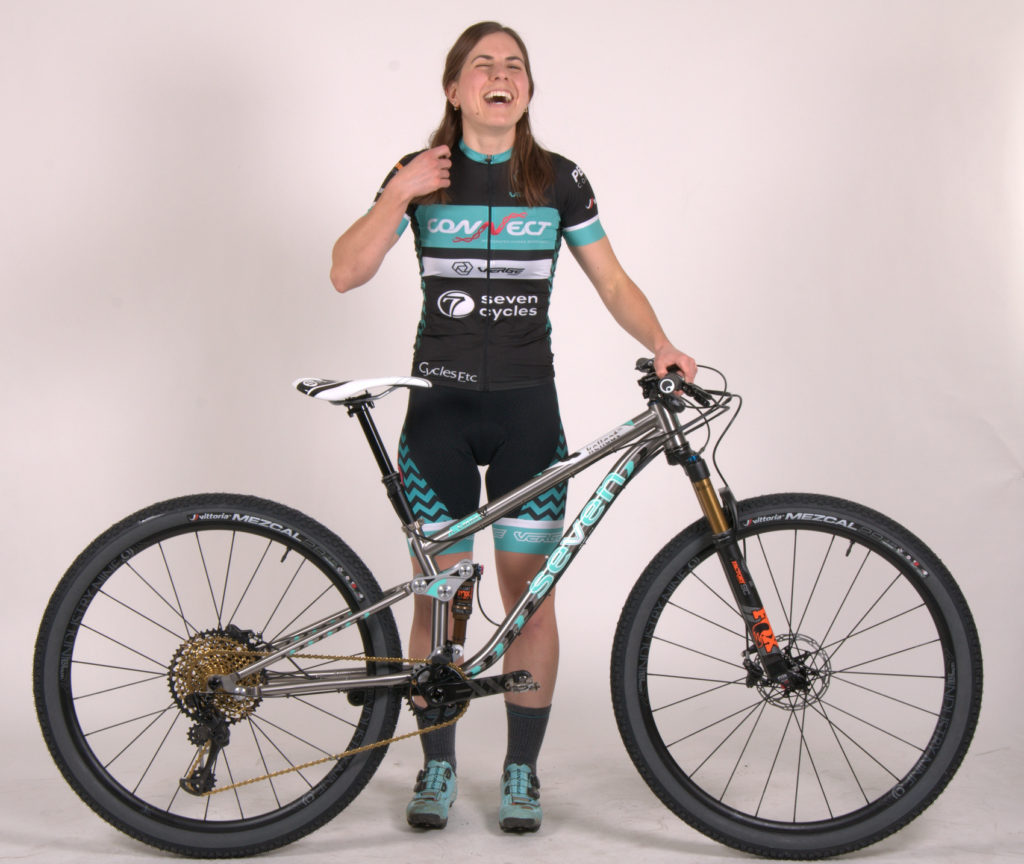
Are women different?


Building Your Titanium and Carbon-Titanium Bikes in the USA for 29 Years
U.S. Built Custom Bicycles in Titanium and Titanium-Carbon Mix

Who is the specific woman? We see a lot of “women’s specific” bikes out in the world, but we have yet to meet any specific women. In all the fittings and all the designs we have done, what is resoundingly clear is that women’s bodies are pretty non-specific. In fact, women’s bodies vary more than men’s do, in proportion, so it’s a hard task to design something that will fit most women, even of the same height, in any more than a cursory way. Making a man’s bike smaller doesn’t get at the half of it.
So we consider what makes women different than men. For example, women generally (but not always) have a wider pelvic arch than men, greater pelvic tilt also. These things affect saddle position and saddle height. Generally speaking (but not always) women have longer legs relative to their height than men do. Their weight is lower and farther back, which affects the center of gravity, handling and reach. Their shoulders are usually (but not always) narrower, and they have smaller hands (sometimes), all of which impacts front-end geometry and handling.
The generalized differences are informative, but really, when it comes right down to it, every rider, male or female, is an individual, with specific geometric needs, with a tubeset that matches their riding preferences, with their own aesthetic sense and ideas for their bike. That’s why we make rider-specific bikes.
As far as we can tell, there is no specific woman, but there might be a specific bike for every woman (or man), who wants one.
Seven Cycles
Watertown, Massachusetts
Years in Business: 8
Employees: 35
Seven Cycles doesn’t make a lot of noise about women’s issues and it hasn’t joined the fray of companies offering “women’s-specific” bikes, but women play an important role at the high-end frame builder.
Jennifer Miller co-founded, co-owns and co-runs the company. Of the four people who helped start Seven, half were women. A third of its employees and more than 20 percent of its customers are women.
Prior to joining Seven as director of marketing, Miller worked at Merlin in operations and supply chain management. Before that, the avid cyclist and former mountain bike racer worked in financial services.
Miller said her gender matters little when it comes to business. By the same token, Seven has steered clear of the trend to develop and market bikes and products designed specifically for women.
“Women want to be taken seriously. They want choices and access to the same state-of-the-art products and services available to men. Often, ‘women’s specific’ offerings don’t represent the best and most innovative products,” she said, adding that Seven’s approach to building only custom bikes is a better solution to fitting female cyclists.
“Our rider-specific approach to frame building is the most comprehensive way to address the needs of women. A woman can choose from any of our 20 models, and we will design and build a bike specifically for her. We address everything—fit, biomechanics, ergonomics, handling, ride characteristics, features, options and color,” she said, adding that it’s very difficult to generalize about women’s needs.
“We have found that female bodies tend to vary more from woman to woman than male bodies do from man to man. It isn’t enough to say women have shorter torsos and smaller hands, and design products around these generalizations and expect to serve the women’s market adequately.”
“I fear some of the efforts to market to women risk further marginalizing them, especially if retailers think women need special treatment and careful handling.”
“The way I see it, providing great customer service—attentive, respectful, knowledgeable and helpful staff—shouldn’t be a gender issue,” Miller added.